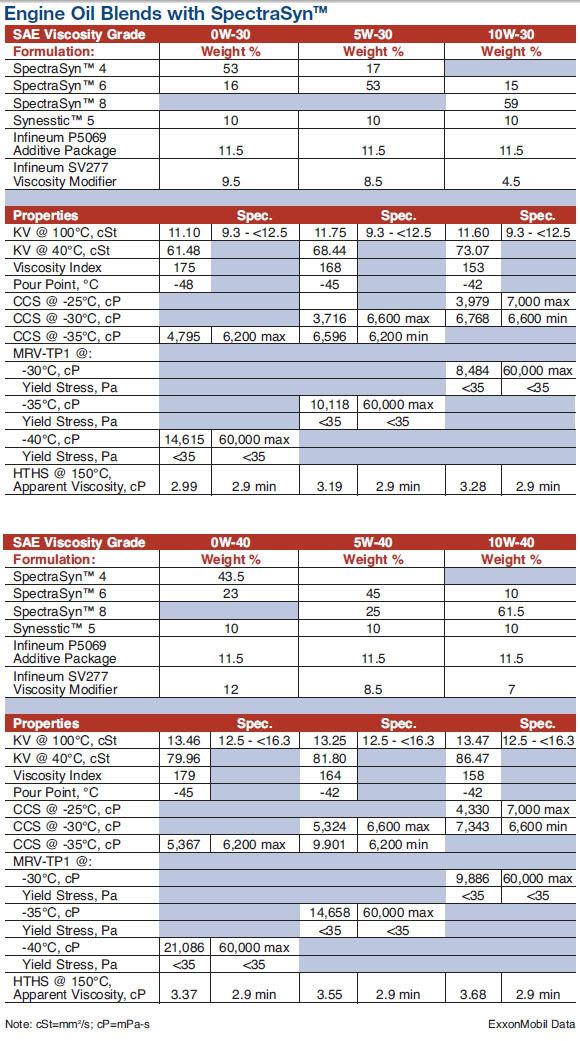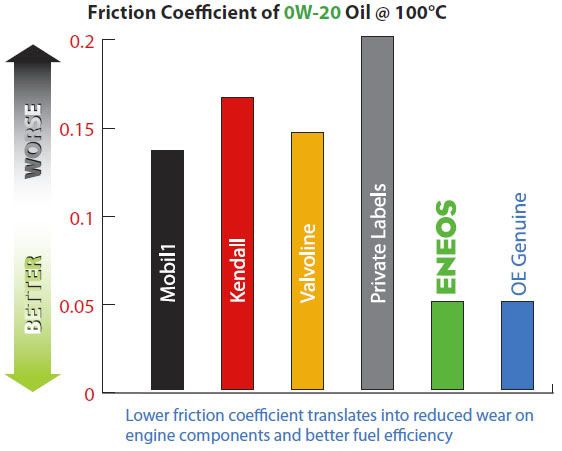Originally Posted By: Gokhan
Here is the Group IV/V (PAO + Group V) "truly synthetic" oil formulation guide by Mobil.
As you can see in the table, the more is the spread in xW-y, the more is the concentration of viscosity-index improvers (VIIs) in the formulation.
How much an oil will shear depends on two things: (a) how much VIIs are in the oil and (b) how much a particular make and model of VII shears (how good quality a particular make and model of VII is [Infineum SV277 in the table above]).
Note that the above is a guide only and it's not the formulation of Mobil 1 Group IV/V oils. It's possible to formulate Group IV/V oils (except for perhaps very wide spreads in xW-y) without any VIIs and some VIIs also shear very little.
So, it's hard to say how much a given 0W-30 (say, Mobil 1 AFE) would shear. The UOAs seem to suggest that Mobil 1 0W-30 AFE doesn't shear much. But, in general, if you're looking for a shear-resistant oil, you're safest with the smallest spread -- in this case dino (conventional) or synthetic 10W-30. Many dino
and synthetic 5W-30s shear quite a bit. Also, if your application is OK running even the thinnest grades and you don't drive too hard or tow too heavy, shear isn't a big concern.
With quality oil's(base stocks) i'm sure shearing is keep to a minimum,AFE for me in severe conditions it comes out just as thick or thin as when it when in,is that a reliable source? probably not but haven't lost an engine yet with this oil.
we all know about shearing so you can stop posting every other post about it no cars are on the side of the road blown from running a 0wxx oil.





